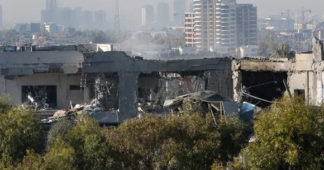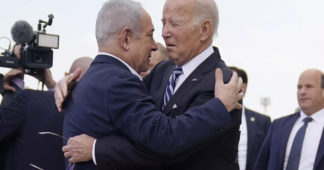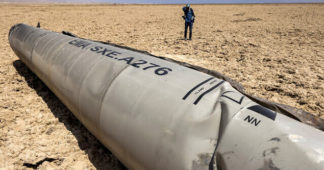In indirect message to the US via Qatar, Iran says it doesn’t want a regional war, but that Israel must be ‘deterred’, an Iranian official tells Al Jazeera.
Oct. 3, 2024
Iran has told the United States via an intermediary that any Israeli attack against Iran would meet an “unconventional response” that includes targeting Israeli infrastructure.
In exclusive remarks to Al Jazeera, an Iranian official said on Thursday that his country has sent a message to the US, via Qatar, addressing rising regional tensions after Iran’s missile attack on Israel.
In the message, Tehran told Washington that “the phase of unilateral self-restraint has ended”, adding that “individual self-restraint does not secure our national security requirements”.
The indirect message also emphasised that Iran does not want a regional war, the official said.
On Wednesday, Israel pledged to respond after Iran’s Islamic Revolutionary Guard Corps (IRGC) fired a two-wave ballistic missile attack at military and security targets in Israel.
Iran says Tuesday’s missile attack was in response to Israeli attacks on the besieged Gaza Strip and Lebanon, and the killing of key officials in Hezbollah and the Palestinian group Hamas.
The salvo of about 200 projectiles caused no casualties as most missiles were intercepted, according to the Israeli army.
The US has repeatedly promised to back its close ally Israel.
Al Jazeera’s Kimberly Halkett, reporting from Washington, said Iran’s message sent to the US appeared to be a response to President Joe Biden’s comments on Wednesday in which he said Israel had the right to respond to the missile attack.
“Biden said Israel has the right to retaliate for the recent Iranian strikes, unlike what happened in April when Iran targeted Israel and the White House cautioned Israel not to respond,” Halkett said.
The Iranian message could be interpreted in one of two ways, she said.
“It could mean, ‘We don’t want you to do anything, we’re trying to deter that,’ or it could be a warning: ‘You take action and our response is going to be even bigger,’” Halkett said.
‘Tough consequences’
The Iranian official who spoke to Al Jazeera said that in the message to the US, Iran reiterated the need to curb Israel “and its unbridled madness” in the region.
Israel this week sent ground troops into southern Lebanon in what it described as “limited” raids and has continued to bombard the country, including its capital Beirut, for nearly two weeks. Its attacks have so far killed more than 1,000 people, and displaced more than 1 million from their homes, according to Lebanese officials.
It has also continued its deadly assault on Gaza, which it launched nearly a year ago.
Some 90 percent of the enclave’s population has been displaced and Israeli forces have been accused of exacerbating an already dire humanitarian and hunger crisis by obstructing the supply of aid.
More than 41,000 people have been killed in the Israeli assault, the majority women and children, according to Palestinian authorities. Israel says it is fighting Hamas “targets and infrastructure” in the campaign.
Israel must be “deterred practically”, the Iranian official said.
Tohid Asadi, a writer and Iranian affairs specialist, told Al Jazeera that while Iran had no interest in “dragging the entire west Asia into a full-fledged, all-out war scenario”, Israel has continued to test it in the last few months.
“With the developments, we are observing these days, we are seeing and hearing a sort of double-edged statement by Iranian officials,” Asadi said.
“On one hand, they claim they are not interested in war … at the same time, they’re saying they’re not afraid of war,” he said. The comments suggest that in case of any further aggression, there would be “tough consequences”.
“The message clearly heard from Tehran these days is that it’s not going to patient any more because its patience has limits,” he said.
Elijah Magnier, a military analyst, agreed. He told Al Jazeera that Iran has two choices: either “wait until all of its allies are defeated and then its turn will come to be attacked by Israel”, or “join the battle now”.
“Iran will not tolerate any Israeli attack, even against military facilities or security facilities because Iran … considers they are now even … Israel hit twice, Iran hit twice,” he said.
We remind our readers that publication of articles on our site does not mean that we agree with what is written. Our policy is to publish anything which we consider of interest, so as to assist our readers in forming their opinions. Sometimes we even publish articles with which we totally disagree, since we believe it is important for our readers to be informed on as wide a spectrum of views as possible.











